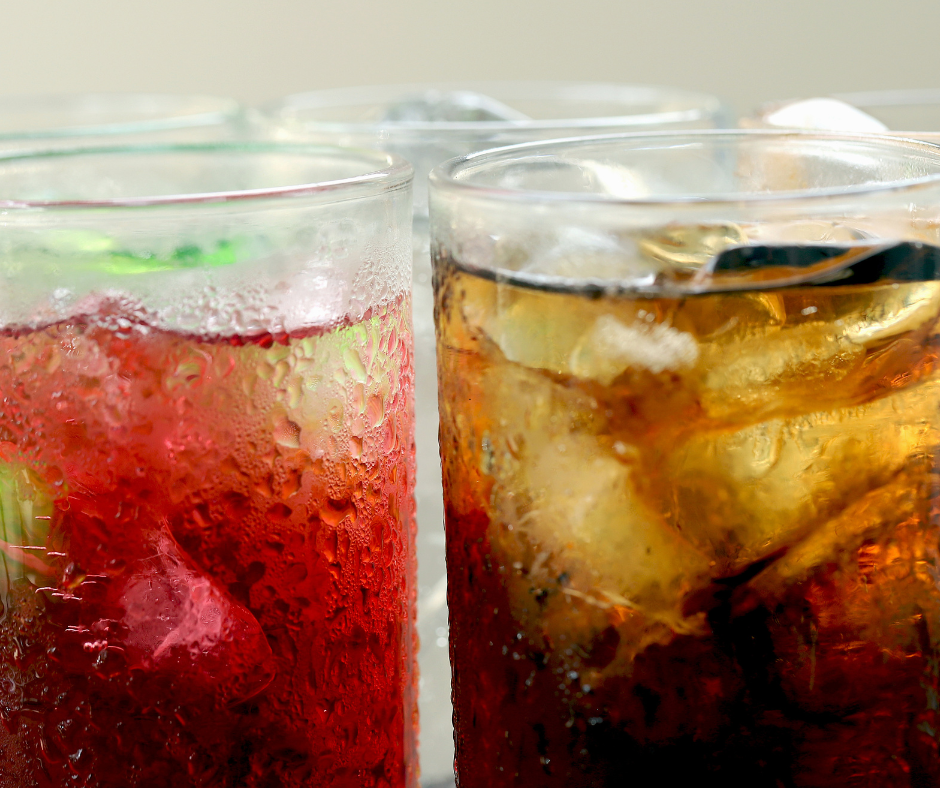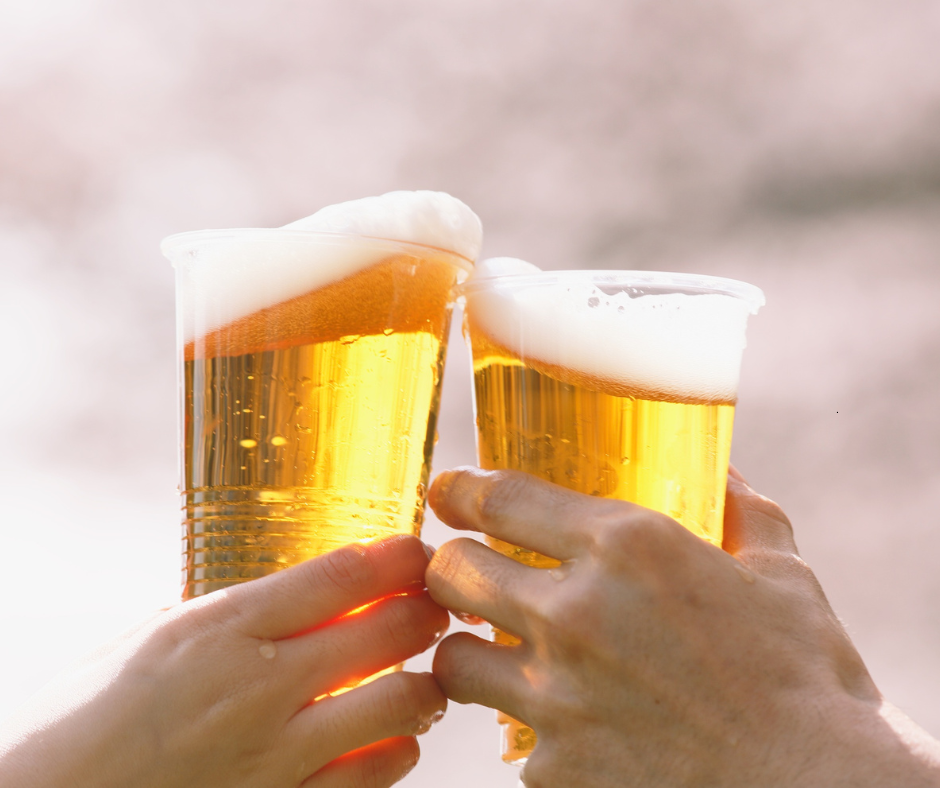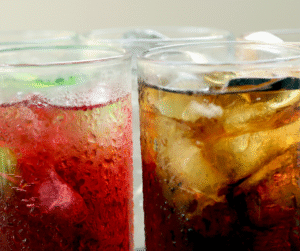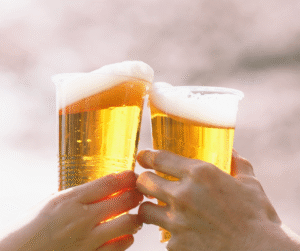A rising number of hospitality professionals and beverage producers are asking the same question: how can we keep CO₂ levels down without affecting performance?
From busy bars to precision-driven breweries, carbon dioxide plays a crucial role. It carbonates beer, powers dispense systems, and preserves product freshness. But while CO₂ is essential, poor gas management leads to avoidable waste, emissions, and rising operational costs. Learn how to keep CO2 levels down in your drinks business.
This blog explores how the drinks industry can reduce CO₂ waste through smarter equipment choices and improved gas filtration. You’ll learn why CO₂ control matters, what drives waste, and how switching to Sure Purity’s long-lasting filters helps reduce your environmental impact — all while protecting product quality.
Key things you’ll take away from this guide:
- Why CO₂ is essential but wasteful without proper control
- How excess CO₂ affects the environment and your bottom line
- The common causes of CO₂ loss in beverage systems
- Practical tips to cut waste and improve efficiency
- How Sure Purity’s filtration systems reduce carbon emissions and solid waste
Whether you manage a high-volume pub, a mobile bar, or a growing brewery, this post will give you the tools to operate more cleanly and efficiently.
Why CO₂ Waste Is a Bigger Problem Than You Think
CO₂ is deeply embedded in drinks production. It adds fizz, preserves flavour, and powers dispense systems. But without careful control, it becomes a major source of waste, inefficiency, and environmental harm.
CO₂ Waste Happens More Often Than You Think
Many bars and breweries lose CO₂ through:
- Leaks in fittings, hoses, or regulators
- Over-carbonation during kegging or bottling
- Purging lines unnecessarily
- Using low-grade or contaminated gas that needs venting
- Inefficient filtration systems requiring frequent replacements
Each of these contributes to higher emissions and wasted gas — which means higher costs and a larger carbon footprint.
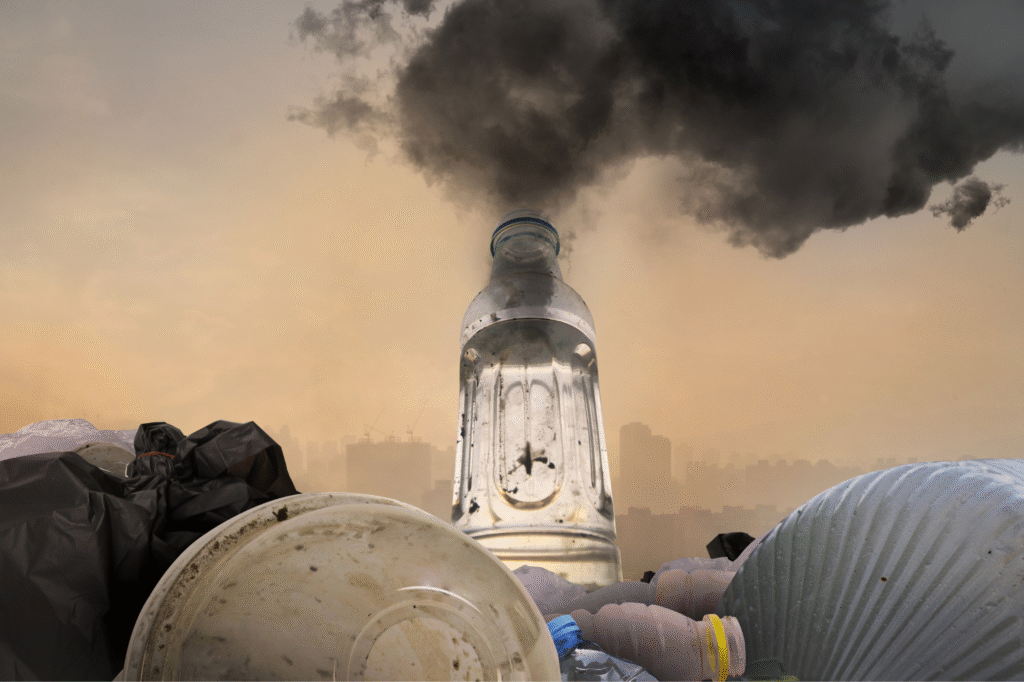
The Environmental Impact of Excess CO₂
While some atmospheric CO₂ is natural, a growing percentage comes from industrial activity. In the drinks industry, sourcing and purifying CO₂ often involves energy-intensive processes, including cryogenic separation or chemical scrubbing. These methods:
- Produce large volumes of solid and chemical waste
- Increase transport and disposal emissions
- Raise a company’s overall carbon footprint
This matters, especially as many drinks businesses now track environmental performance through ESG frameworks and carbon reporting. Wasting CO₂ doesn’t just cost money — it’s a reputational and regulatory risk.
Sure Purity’s Low-Waste Solution
Traditional filtration methods often require 12 filter changes per year. That’s 12 cartridges per gas line going to landfill. Sure Purity’s advanced filters last 12 months, cutting that number in half.
This means:
- 50% less solid waste
- Fewer deliveries and disposals
- Lower carbon footprint from operations
Check out our polishing filters here:
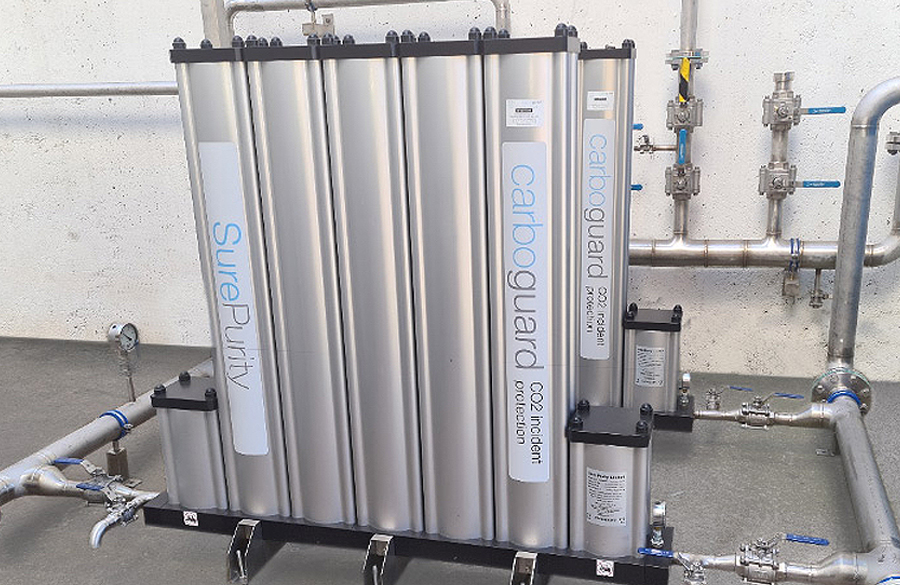
Common Causes of CO₂ Loss in Beverage Systems
In the drinks industry, CO₂ is as valuable as the beer it carbonates. Yet in many breweries, taprooms, and bars, it’s wasted every day — often invisibly.
One of the most overlooked culprits is gas leakage. It might be a worn-out hose, a loose regulator fitting, or a poorly maintained coupler. Even small leaks, left unchecked, can release substantial volumes of CO₂ over time. This doesn’t just inflate your gas bills — it also adds unnecessary emissions to your carbon footprint.
Another frequent issue is over-carbonation. It can happen during bottling or kegging when pressure levels aren’t properly calibrated. Excess CO₂ builds up and eventually vents, taking energy and product consistency with it. In small batch production, this kind of waste quickly adds up.
Then there’s the matter of gas purity. When CO₂ is contaminated with moisture, sulphur, or hydrocarbons, the result isn’t just poor-tasting beer — it often needs to be dumped altogether. To compensate, many businesses resort to venting the system or repurifying the gas, both of which increase consumption and waste.
Even storage and handling play a part. CO₂ cylinders stored improperly or exposed to temperature fluctuations can lose pressure or degrade in quality before they’re even used. Poor staff training only compounds the problem, as systems are adjusted incorrectly or purged too often.
The reality is this: most CO₂ loss isn’t dramatic or obvious. It’s slow, steady, and entirely avoidable. With the right training, equipment, and gas filtration system in place, you can reduce these losses dramatically — cutting waste, costs, and emissions all at once.
Sure Purity’s filtration solutions are designed with these problems in mind. By filtering out harmful impurities at the point of use and extending filter life to 12 months, they help maintain optimal performance across the system. Less venting. Fewer maintenance interventions. Cleaner gas and better beer.
The Hidden Emissions Behind CO₂ Usage in the Drinks Industry
It’s easy to think of CO₂ as just a byproduct of brewing or an inert gas used to push beer to the tap. But every kilogram of CO₂ used in drinks production has a hidden cost — and that cost is rising.
Behind every cylinder is a supply chain. CO₂ must be sourced, purified, compressed, transported, and stored. Each of these stages consumes energy and generates emissions. If your system vents gas unnecessarily or relies on inefficient purification, you’re not just wasting product — you’re increasing your environmental impact.
Traditional gas purification systems add to the problem. Many rely on short-life filters that generate high volumes of solid waste. These must be manufactured, transported, and disposed of more often, increasing emissions at every stage. Multiply this across hundreds or thousands of sites, and the carbon footprint becomes substantial.
Sure Purity’s approach is different. Our filtration technology is engineered to reduce this waste at its source. Because our filters last twice as long as standard options — just six filters per year instead of twelve — customers cut solid waste in half. That’s fewer replacements, less packaging, and far fewer disposal-related emissions. Learn more about what polishing filters are, in our dedicated guide.
This matters because many breweries, hospitality groups, and bottlers are now working toward strict environmental targets. Carbon reporting, ESG frameworks, and consumer pressure mean businesses can no longer ignore the indirect impact of their operations.
Cutting CO₂ usage is no longer just a technical goal — it’s part of brand reputation, compliance, and long-term cost control. That’s why adopting low-waste, high-efficiency systems isn’t just the right move for the planet. It’s good business too.
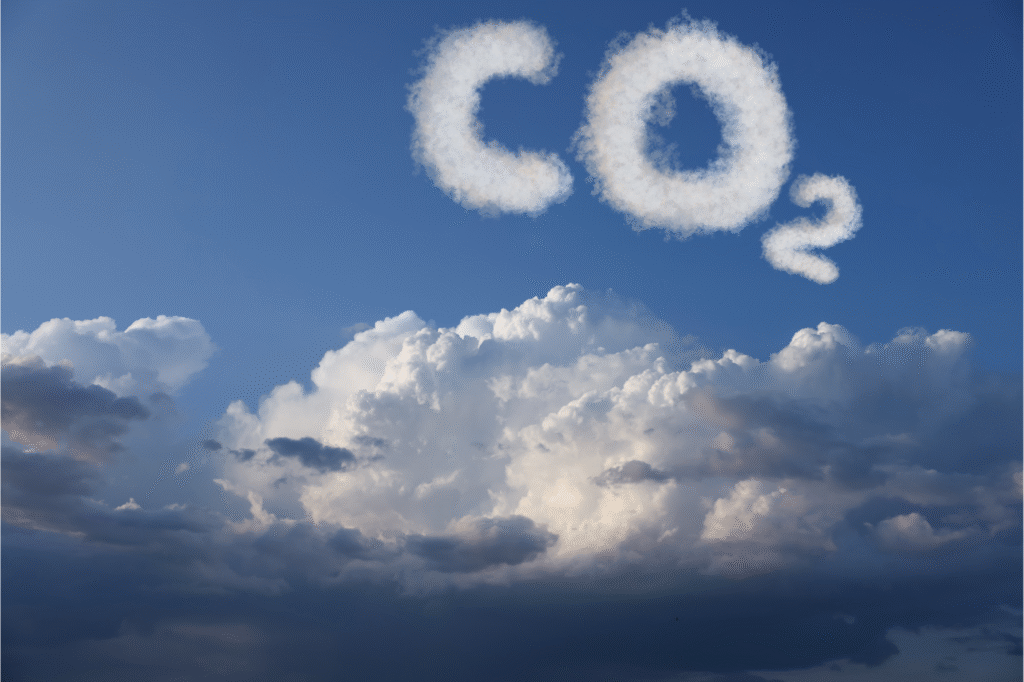
Low-Waste CO₂ Filtration Explained
Reducing CO₂ levels in beverage systems doesn’t always mean cutting back on gas. It means using it more efficiently. That’s where filtration makes all the difference — and where Sure Purity’s technology stands out.
Traditional Purification: The Hidden Waste
Conventional gas purification systems are often bulky, chemical-heavy, and short-lived. These methods:
- Use cryogenic or chemical absorption processes
- Require frequent filter changes (often monthly or bi-monthly)
- Create significant solid waste with every filter disposal
- Need high maintenance and regular downtime
This results in more packaging, more deliveries, more waste — and more emissions across the supply chain.
Sure Purity’s Low-Waste Innovation
Sure Purity’s filtration technology is different by design. Our systems use long-life, high-efficiency filters that:
- Last up to 12 months — twice as long as many conventional filters
- Reduce solid waste by up to 50%
- Require fewer changeovers and maintenance visits
- Offer consistent, food-grade CO₂ purity for better beverage quality
With fewer filters used per year, businesses generate less packaging waste and reduce transport emissions linked to delivery and disposal. Over time, this translates to a significantly smaller carbon footprint.
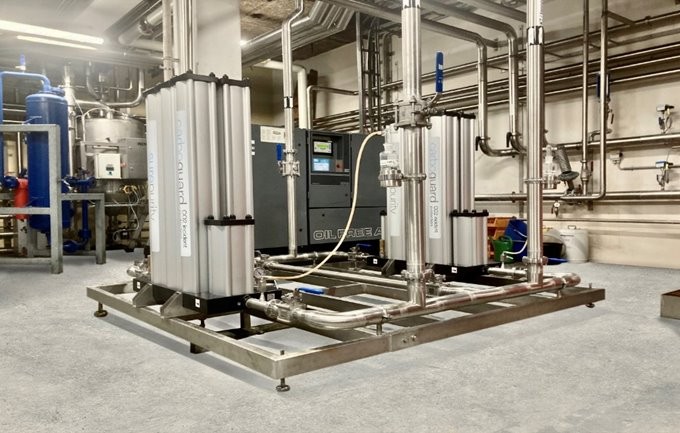
Benefits at a Glance
| Feature | Traditional Filters | Sure Purity Filters |
| Filter Lifespan | 1–6 months | 12 months |
| Annual Filter Usage | 12+ per system | 6 or fewer |
| Solid Waste Volume | High | 50% less |
| CO₂ Purity | Varies | Consistently food-grade |
| Environmental Impact | High | Significantly lower |
Sure Purity’s mission has always been simple: eliminate waste without compromising performance. Our systems protect product quality while helping customers align with their sustainability goals. Whether that’s cutting emissions, achieving ISO certifications, or meeting internal ESG targets.
Practical Steps to Keep CO₂ Levels Down in Beverage Setups
Cutting CO₂ waste in bars, breweries, and beverage production facilities doesn’t always mean cutting corners. In fact, keeping CO₂ levels optimised often improves quality, consistency, and operational efficiency.
Here’s how beverage professionals can reduce gas loss and environmental impact—without compromising the pour.
1. Maintain Optimal Pressure Levels
Incorrect pressure settings are a common cause of CO₂ overuse. Too high, and you risk over-carbonation and foaming. Too low, and beer may go flat or inconsistent.
- Regularly calibrate your gas regulators
- Match pressure to beer style and line length
- Avoid unnecessary PSI increases to “fix” slow pours
2. Prevent Leaks Before They Waste Gas
Tiny leaks from fittings, valves, or regulators can release large volumes of CO₂ over time.
- Conduct regular leak tests using soapy water or a digital detector
- Tighten all fittings after filter or keg changes
- Use high-quality seals and O-rings designed for gas systems
3. Store CO₂ Cylinders Safely
Poor storage leads to unnecessary gas venting and increased temperature fluctuations.
- Keep cylinders upright in a ventilated, dry space
- Avoid direct heat, sunlight, or freezing temperatures
- Label all cylinders and log usage to spot irregularities
4. Train Your Staff to Handle Gas Responsibly
Frontline teams often adjust or move equipment without knowing the gas implications.
- Offer training on best practice keg tapping, regulator settings, and shutdown procedures
- Post CO₂ handling guides in cellar areas or behind the bar
- Include filtration awareness in staff onboarding
5. Filter at Point-of-Use for Maximum Efficiency
Installing a Sure Purity filter close to the dispense point protects beer from harmful contaminants and ensures every molecule of CO₂ is clean, consistent, and efficient.
Unlike bulk system filtration, point-of-use filters prevent taint and reduce waste during storage, delivery, and dispense. It’s a small change that makes a big difference.
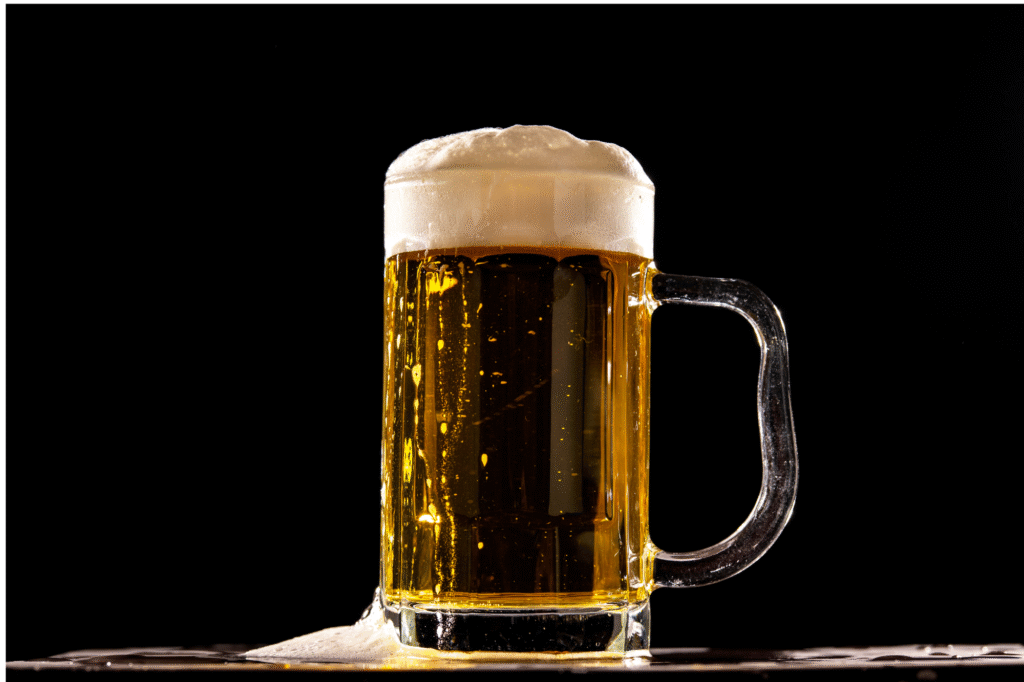
Why Smarter Gas Use Supports a Cleaner Drinks Industry
Reducing CO₂ waste isn’t just good practice—it’s becoming a critical part of environmental responsibility in the drinks sector. With growing pressure to meet sustainability targets, breweries and beverage brands must rethink how they manage gas.
A Carbon Footprint Beyond the Pour
Every cylinder of CO₂ used in drinks production comes with an environmental cost. From sourcing and purification to transport and disposal, emissions add up. When gas is overused, leaked, or wasted, the carbon footprint of each pint increases.
Inefficiencies like:
- Excessive venting during keg changes
- Over-carbonation and beer loss
- Short filter replacement cycles
…all contribute to higher emissions and unnecessary resource use.
How Sure Purity Reduces the Industry’s Impact
Sure Purity’s eco-friendly gas filtration technology is designed to cut waste at the source. Our filters last 12 months—double the lifespan of traditional models. That means half as many filters manufactured, shipped, and disposed of each year.
This directly reduces:
- Solid waste going to landfill
- Energy and emissions from filter production
- Time and labour spent on filter replacements
It also supports our customers’ sustainability goals by helping them reduce waste and stay compliant with corporate ESG commitments.
Sustainability Without Sacrifice
The drinks industry often faces a trade-off between efficiency and environmental impact. But with modern filtration, this tension eases. Sure Purity customers don’t need to choose between beer quality and sustainability—they get both.
Better gas purity = cleaner operations = greener business.
Whether you’re running a small taproom or a national bottling plant, optimising CO₂ usage is a practical step toward a lower-carbon future.
Efficiency, Purity and Sustainability Go Hand in Hand
Managing CO₂ responsibly in the drinks industry isn’t just about ticking a box—it’s about protecting product quality, saving money, and doing your part for the planet. Whether you run a brewery, bar, or bottling plant, reducing carbon waste and improving gas purity benefits every part of your operation.
Sure Purity’s filtration technology offers a smart, low-waste alternative to traditional CO₂ purification methods. By switching to a longer-lasting filter system, you cut solid waste by up to 50%, reduce your carbon footprint, and avoid harmful contaminants—all without compromising on performance.
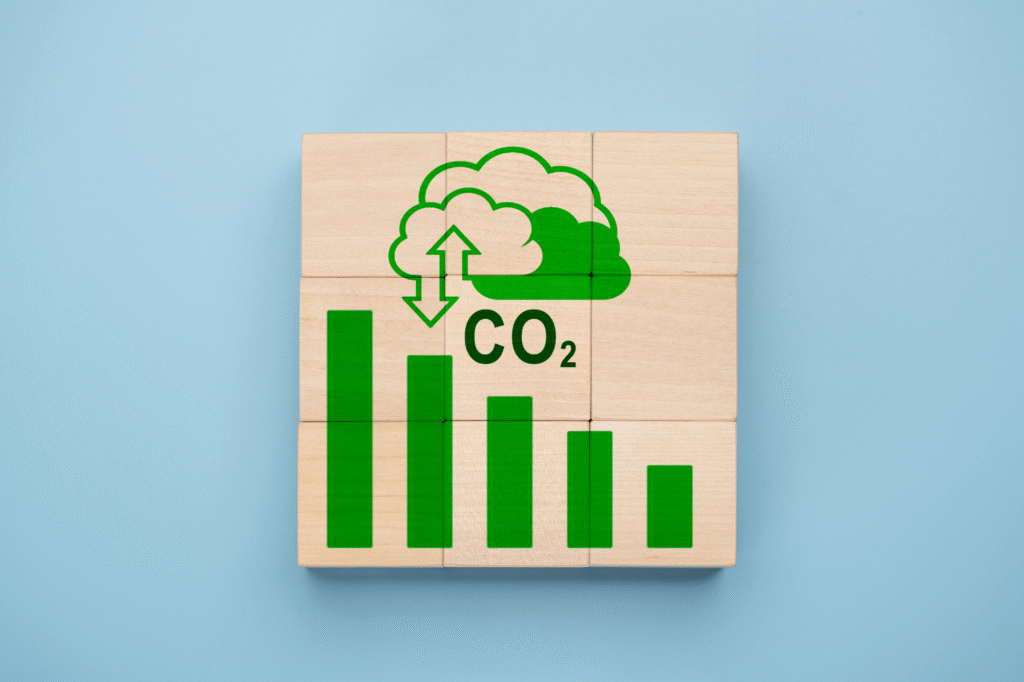
Key Takeaways
- CO₂ waste contributes to higher emissions and operating costs in beverage production and dispensing.
- Unfiltered gas affects taste, foam, and safety, risking customer satisfaction and brand reputation.
- Smart gas management helps lower your carbon footprint while maintaining high drink quality.
- Sure Purity filters last 12 months, reducing waste and cutting replacement frequency in half.
- Eco-efficient filtration supports ESG goals and demonstrates commitment to sustainable practices.
Now’s the time to re-evaluate how your business handles CO₂. Small technical upgrades—like installing Sure Purity’s filtration systems—can lead to significant environmental and commercial gains.
Explore our full range of gas filtration solutions or get in touch for tailored guidance on creating a cleaner, more efficient beverage operation.

